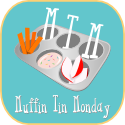"It has been an unusually fatiguing day, a chapter of accidents"
--Leopold Bloom
Book Details:
Paperback: 1040 pages
Publisher: Penguin Classics (March 30, 2000)
Language: English
ISBN-10: 0141182806
Review:
I have actually been dreading writing this review. Trying to review a book that provokes such extreme and diverse opinions in thousands, if not millions, of people is a daunting task at best. Especially since my opinion is a casual one at best. That said, I'll give it my best shot.
The basic plot of
Ulysses is exactly that: basic. It primarily follows Leopold Bloom throughout the course of his waking hours on June 16, 1904. We first see him before breakfast, and we last see him as he crawls into bed in the wee hours of the next morning. While he runs errands, attends a funeral, attempts to work, frequents a few bars and a brothel, and walks home, we are subject to his thoughts, imaginings, and hallucinations. If that seems like a fairly boring plot, I can attest to the fact that it is.
In addition to Bloom's travels, we encounter Stephen Dedalus several times. In fact, Bloom's day is bookended by Stephen's own wandering. I recall him fondly from high school literature class, but I will reserve most of my discussion of Stephen Dedalus for my review of
Portrait of the Artist as a Young Man.
To my mind, Bloom is a fairly average man. He spends a lot of time seemingly unaware of what is going on around him, and he is not particularly popular or successful at work. His wife seems unfaithful at best, an unattractive hypochondriac at worst. Bloom also appears to imagine or hallucinate when conversation is lacking or unstimulating. Rather than actually participating in dialogue with friends, he appears to assume their response. He is also lecherous from the first, trying to catch glimpses of stocking in the opening chapters and experiencing a hallucinatory visit to a brothel toward the end.
What really struck me about
Ulysses, though, was the sheer wordplay and brilliance of construction. Each chapter, or section, is written in a different style, ranging from newspaper headlines to archaic Anglo-Saxon language to Socratic dialogue. I am simply in awe that one man could execute the diverse structure of the novel so well.
And as I said, the wordplay is phenomenal. True to form, Joyce uses neologisms throughout
Ulysses with great success. For instance, in the "Wandering Rocks" section, he mentions a gentleman struggling with a "stickumbrelladustcoat." Reading that word instantly conjured a vivid picture of the man in question and how he was carrying his accessories. There are passages such as the following that I just found amusing:
What suddenly arrested his ingress?
The right temporal lobe of the hollow sphere of his cranium came into contact with a solid timber angle where, an infintesimal but sensible fraction of a second later, a painful sensation was located in consequence of antecendent sensations transmitted and registered.
Obviously, it would be tiring to read hundreds of pages in that raw, scientific style, but I thought it was a fantastic way to say that he bumped his head. There are hundreds of other examples of Joyce's linguistic play, but since that was my primary joy in reading the novel, I won't spoil them all here. (Not to mention the fact that I have better things to do!)
As far as the charges of indecency go, there are certainly sections of the novel that are downright pornographic. In fact, there were parts that were very difficult for me to read, given their graphic nature. The sections, as in "The Oxen and the Sun," where the men are sitting around being lewd did not particularly disturb me. Neither did a lot of the graphic descriptions of bodily functions. However, "Circe" was a tough chapter as I could not discern which sexual acts were actually happening, which were Bloom's fantasies, and which were his nightmares. It was all jumbled together, and, as I say, downright pornographic. Also, there is a section where a young girl exposes herself to Bloom as he masturbates that I found disturbing. I suppose, though, I'll have to get over that issue soon since Nabokov's
Lolita is just a few books away.
Summary:
Was this a good read?
That depends on what is important to you. As a novel, it was not particularly great. Average, but not great. As a work of art, as a manuscript, it was phenomenal. While the story was primarily boring, the linguistic talent used to write it is, to me, mindblowing.
Would I recommend it?
Certainly, with reservations. If someone is a lover of literature and wordplay, particularly modernism, this is an amazing must-read. If someone is looking for a quick, entertaining read, look elsewhere. I do think that everyone who considers themselves a language lover should read this one, but I definitely do not think all of those people will love it. There is simply not enough plot.
Would I read it again?
Absolutely! I am going to be working on a side project, researching some of the issues and criticism surrounding
Ulysses in the spare time I have between reading, blogging, crafting, and raising children. Well, a girl can dream, right?




















